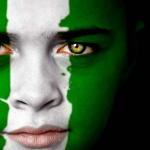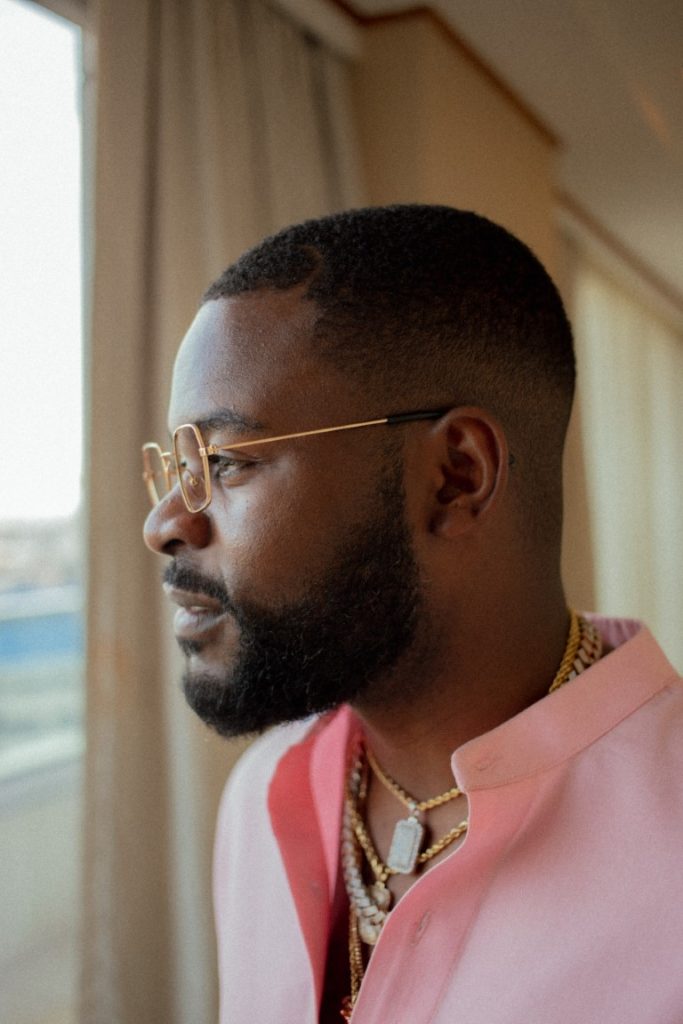According to Folarin Falz Falana: This is Still Nigeria
Shortly after this interview, news of the national grid collapse—for the seventh time this year—broke on the internet. This is happening at the same time undergraduates have been conditioned to be out of school for eight months, with an economy that is nothing to write about. It is impossible to tell Nigeria’s story and not be taken aback by the thoughts of what could have been. As we celebrate our 62 years of freedom, DOWNTOWN’s Kehinde Fagbule had a passionate conversation with someone who has been very vocal about his views on nation-building and everything in between, Folarin Falana, widely referred to as Falz.
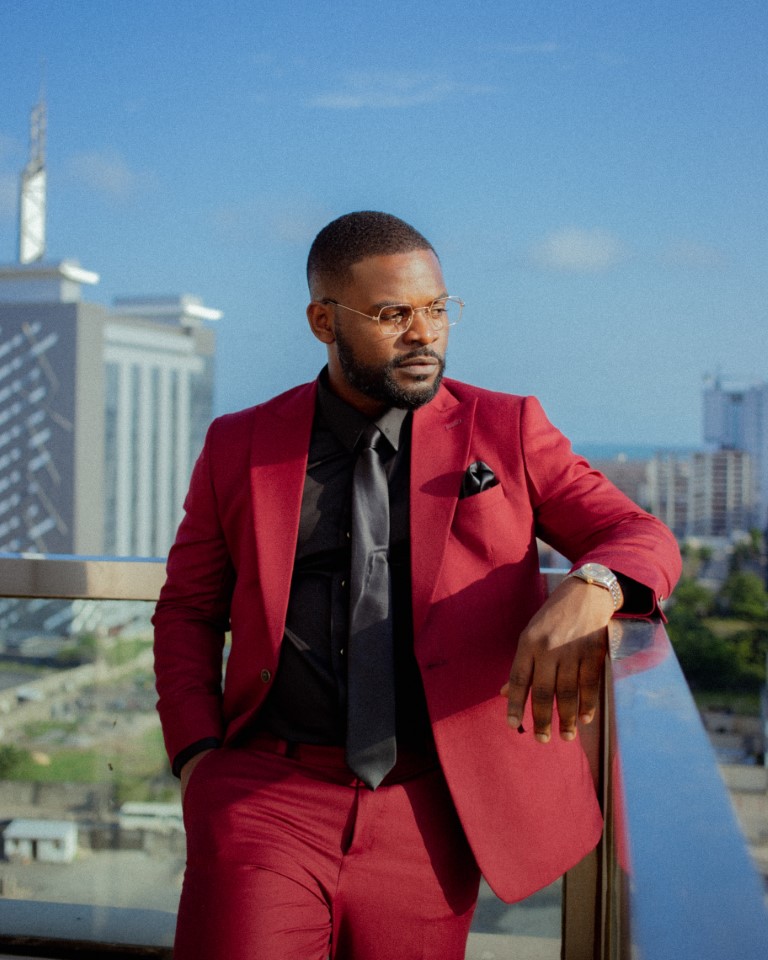
Falz’s work as a renowned activist is recognised by most Nigerians. Having expressed his opinions on how the country should be run one too many times in his music, he has also been at the core of physical activism, agitating for better governance. But his understanding of national politics didn’t come out of thin air—he comes from a household of legal practitioners having lawyers as parents. He spoke about his upbringing by one of the country’s most renowned human rights activists and senior advocates, Femi Falana, and his wife, Funmi Falana. She also happens to be a woman rights lawyer. “Being born to those sorts of parents eventually had a huge impact on my life. Because growing up, even as far back as primary school, I had people refer to me by my parents’ name like ‘oh this is Falana’s son.’ Then I started to realise that there must be something about my parents; they must be known to a certain degree. So that was when it started to register, and I started to want to be like them. Because I was getting that second-hand acclaim, it was nice.”
The nature of his dad’s job—fighting for the rights of the common Nigerian at a time when the country was moving back and forth between democracy and a military regime—meant that his childhood was probably different from every regular kid. He explained, “They were bang in the middle of it. For me, that was also a surreal experience at the time. When I was a kid, I didn’t really know what was going on. But I knew that my dad would go away for a long period of time. My mum would often tell us that he travelled; it was later on, we realised that he was actually being detained by a couple of different heads of state. I know Babangida and Abacha for sure. He would always be relentless; he wouldn’t stop; he would criticise and speak up against them. For a big period of time, he was Fela’s lawyer. And there would be a lot of cases; I mean, everyone knows how notoriously Fela would speak up in a song and beyond against the government of whatever sort, and popsy would always be there to defend him. It was a crazy time growing up; it’s just that I wasn’t fully aware of the craziness at the time. I started to find out later. There’s this vivid picture of him coming back home to this place we used to live somewhere in Ikeja, and I remember my sister and I ran to him, and he had bought us Ribena; he would always bring stuff back. Obviously, as children, that is enough to not really ask any questions.”
Of course, Falz had a lot of Fela influence growing up. Before his critically acclaimed 9-track album, Moral Instruction, where he addressed all of Nigeria’s shortcomings, he was in the news for a while after his cover of Childish Gambino’s global hit, This is America. His version, This is Nigeria, which although became popular amongst Nigerians, was frowned upon by the National Broadcasting Commission (NBC), which later banned it, citing vulgarism as its reason.
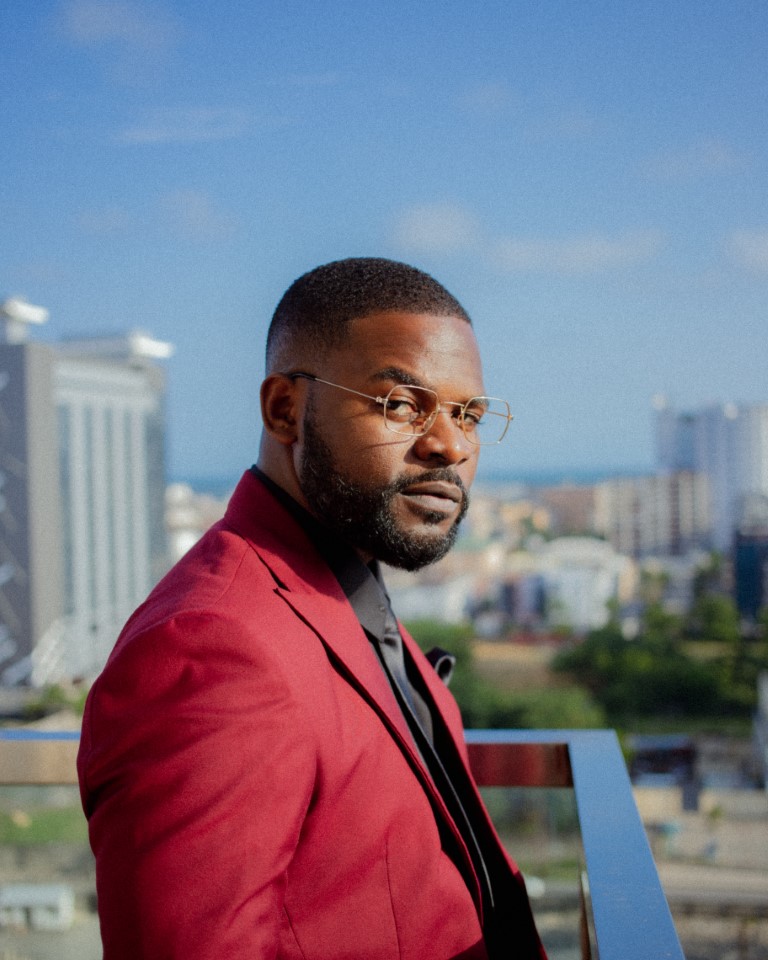
He talked us through that period. “I saw the madness, the reaction, the way the NBC acted. However, I knew what it was. These people felt like this guy was just talking to us. At the end of the day, it is blatant; everyone knows these things. I didn’t say anything offensive, vulgar, or that should be censored in any way, so it didn’t really make any sense that it was banned. So I was just looking and laughing.” But he wasn’t just looking and laughing. Soon as the ban was effected, Falz dragged the NBC to court in a 100 million Naira lawsuit. He affirmed that decision, “Well, yes, I did. But at the end of the day, I was still laughing.” He provided an update on the case, “You know how cases are in Nigeria; the case is still in court today.”
Known for his very outspoken demeanour, Falz has spent a considerable portion of his career speaking directly to power. When asked what he thinks the country needs, he preached, “First thing goes without saying; security. A sense of security. Because it is when people are secure that’s when they are comfortable enough to aspire to be anything. If I’m constantly looking at my shoulder, living in anxiety, how can I possibly realise my full potential as a human being? Everybody needs to feel secure.
And what is at the core of security? The police, military, intelligence agency, everything is in disarray in this country. The police is not police, the military is busy shooting civilians, and everything is just so scattered. These terrorist organisations that have been terrorising the north have continued doing it for the longest time. By no means, security is a no-brainer; I think it’s the number one thing. Then also making people realise how important it is for us to be self-sufficient as a country. Because I personally believe that is the only way we can make significant progress as it stands now, many African countries are guilty of it as well. Many people would say it’s the effect of colonialism, but this is why we remain third-world countries; we are not really manufacturing things for ourselves. We are not producing, inventing or creating; we are just consuming. If you think about it as a normal human being, if you are just spending money without making some, you will be broke eventually. But if you are the one creating what people are buying, you have money, na. It’s that simple. But the people that have been in charge of our affairs for the longest time don’t really care for our country; they only care about their own pockets.”
With the failings of the present administration heightened and leading to the frustration of many Nigerians, the forthcoming elections hold a lot of significance, so much so, that a third party has emerged and has become popular amongst the youth; an unprecedented occurrence. Falz analysed this political development. “Even the third force is still not as prominent as these other two have always been over time, so right now, it is still fresh like Woah! But there is so much support, so much ginger, you can’t help but take cognisance. It’s good to know that it has resonated in people’s minds now because I still hear some stupid people say things. I think they should be looking for freshness. I mean I know that all the candidates at the moment have, in some way, occupied a political position in the past. However, you must look at the track record. Is this person known for doing good? Does this person say or do things to suggest that they have the interest of everyone at heart? Because, as I said earlier on, leaders in the past haven’t really had the interest of the collective at heart; it’s just been their own personal pockets. Who are the people that look like they have continued to amass wealth only for themselves? It’s pretty clear if we really want to look at all these pointers. It’s not that hard to make a decision. Who are the people that seem like they are still coherent with what they’re saying? Who are the people that will be able to carry us for the next few years? These are important things to look at, and I think if people opened up their eyes, it’d be clear.”
This is all credit to young Nigerians who created a movement out of nothing, much like the #EndSARS series of protests that happened two years ago. Falz shared his sentiment on it. “The spirit of that movement is still very much on; I think it is what is making this third force significant. We have started something, and we have to keep it going.”
For a long time, it felt as though Nigeria’s future was firmly placed in the hands of the older generation. A sizable amount of people in power today were the same ones in power even before we gained our freedom. This ridiculous hoard of political power has been the subject of several conversations within the political landscape, culminating in a piece of legislation, the not-tooyoung- to-run bill. Despite the new law’s primary aim of relaxing some of the stringent and discriminatory provisions of the constitution, most young people in Nigeria still aren’t involved in politics past the gubernatorial and presidential elections. Falz disclosed the paradigm shift needed to overturn this age-old conundrum. “I think, a change in political culture. Right now, there’s a culture of godfatherism. There’s a culture of padi padi. Nepotism—appointing people from your state, zoning— this one today na your turn, tomorrow na Igbo turn, next tomorrow na Hausa turn, you know all these ridiculous concepts. All these things are taking us back. I understand the idea of inclusiveness and all that. But this is not where it should play out. Where things have to do with the competence of a candidate, that is all that should matter, regardless of where you’re from. So we have real political structures and parties built on this. You know, young people who genuinely feel like ‘if I come up, and I run, and I’m really merited, then I would win, and it would be a seamless journey. But now everybody’s looking at it like the way dem dey do all these things just dey risky, dangerous, person no get the kind money wey those people get.’ So I think that’s what’s discouraging most young people.”
For some young people, hoping for a country that works is something they’d rather do from outside of it. This year, according to statistics, Nigeria has experienced a mass emigration like never before, resulting in an expected brain drain. When asked what he thinks could be a selling point for young Nigerians to stay back home, he said, “There’s no selling point. One thing that might get people to stay is if these elections actually reflect what the people want, then in that hypothetical situation, if the third force that we speak of does win the election and a brand new fresh personality assumes office, that will give people some level of hope. They will still need to practically see things start to change to fully feel confident, but I think just even seeing that happen will definitely give some people some level of hope.”
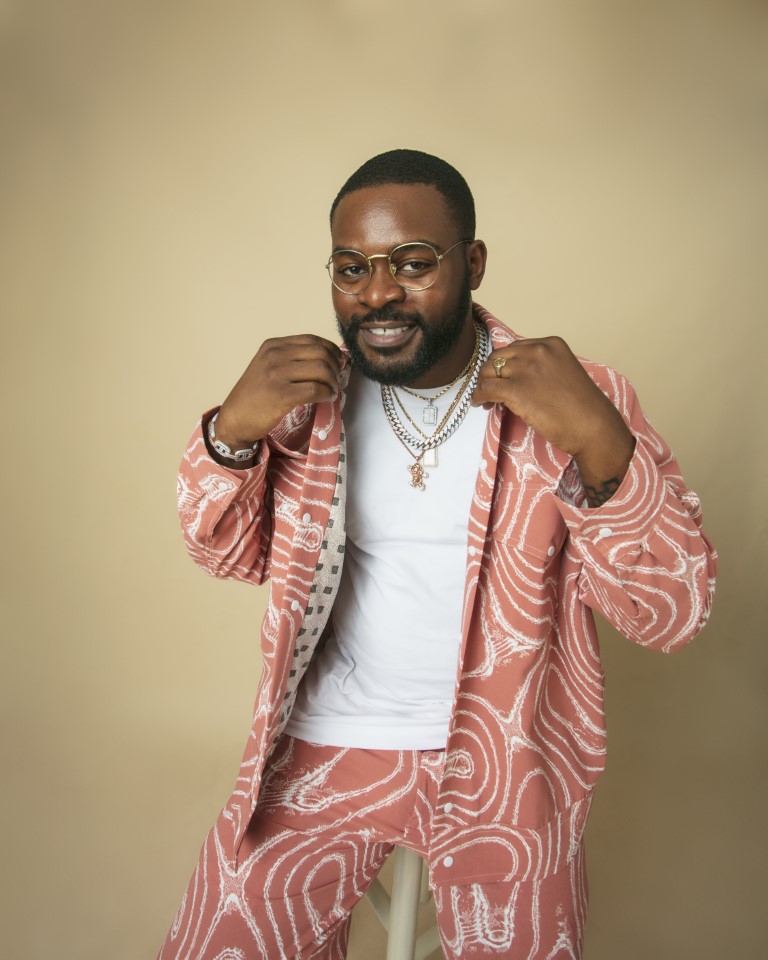
Is there any semblance of hope for our country? Looking back at the 61 years we’ve achieved independence on paper, it is difficult to not be pessimistic. Basic things, such as electricity, healthcare, waste management, and so on, are some of the basic things we ought to have gotten right by now as a nation. How soon can we get them sorted? Falz explained, “It should not be too difficult to get it right if you really have people in power that are serious about this. It shouldn’t be difficult. I just know that efforts by anyone that might have been made in the past would have been frustrated by other people benefiting from things not working right.”
Whether things are going to look up or not is heavily dependent on who assumes power after all is said and done in the 2023 elections. Its significance has prompted the Independent National Electoral Commission (INEC) to introduce technology into the collation of the upcoming election results. But another suggestion that has made rounds in the buildup to the elections is the question of Nigerians in the diaspora taking part in it. Falz is not bothered about that. “Personally, I’m not too concerned about diaspora voting, and I will not worry myself too much about that because the one they are doing here, they have not even gotten right. I think we should focus on getting it right with the people here first before we start including people abroad. We are still talking about discrepancies with collating results and want to be getting votes from the diaspora. Right now, they introduced some form of digitisation to the process. I think it’s only to the extent of collation of the results. Hopefully, that limits the amount of rigging that can take place. Everybody still wants to see how it will play out. Let’s hope we get this right so we can know what to do from there. But I think it’s still premature for diaspora voting.”
Having so much to say about the country and how the politics ought to be played, of course, Falz was asked if, like some of his entertainer colleagues, he would run for office someday. He responded, “I appreciate that. However, politics is not beans. Whoever wants to embark on the journey, there’s a lot of preparations, a lot of things they must have gone to do. I’ve not done any of these,” he concluded laughing.
The concept of independence is one that not a lot of people think about in depth. To be independent comes with an enormous responsibility, one that Nigeria, even after 62 years of it, hasn’t been able to manage properly. When asked what are significant areas to focus on this independence day, Falz explained with the perfect analogy. “We need to focus on being truly independent. As I said earlier, we are not independent at all. If you’re at a point where you have to continue to depend on others to carry about your daily life by either borrowing from them or going to buy from them, meanwhile, the raw materials for these things wey you dey buy dey your backyard, are you truly independent or are you still a baby that feels the need to continue being babied? Because that pretty much is what we are—62 years old but still an infant. In no way is ‘this guy’ standing on his two feet. Loans here and there, you know our external debts now? Tomorrow sells his crude oil somewhere to refine it so that he can buy it back as petrol. Is it not madness? As I said, that is the area where we need to focus on for us to be able to say that we are truly independent. We need to be self-sufficient. However, on the bright side—because I don’t want to leave this on the dark side—I think we are still fairly young as a country. Countries in the west have had their working systems for tons and tons of years. For a huge amount of time, we were subjected to colonialism and slave trade; obviously, that completely scatters you regardless of what system you had before that. Even for a significant amount of time during these 62 years, there was still a tussle between democracy and the military. We are not fully balanced, we are still fighting. It’s like children when they are without parental supervision and left to sort themselves out; they will first fight each other for leadership and power; that is the stage we are at. However, we are now reaching adolescence, so we ought to be sensible now to realise that just like the abandoned children, we’ve been left to figure this out all by ourselves, and we are still here fighting. I think now we are in that phase where we are transitioning to be that young adult figure that will now be able to say ‘come, let’s get things right. This adult wey leave us sef, na him cause our problem.”
But of course, we have something to be grateful for even through the present epileptic state of the country. Or don’t we? Falz approached the question with a double-edged response. “Collectively as a country, with the way that the political space is, there is not much that is flourishing. However, as people, that’s a different perspective. As a country, without these irresponsible people that are running us, we are actually a blessed country. If you wake up in the morning, you don’t have horrible conditions as you exist here. The weather is always so perfect; in the worst case scenario, rain will fall. We don’t have anything so difficult to manage. We are blessed with so many resources under our ground. Soil is so rich, so really and truly, we have everything to be grateful for. However, on the flip side of things, we’ve had so much irresponsibility in the political space, so we don’t have anything to be grateful for.”
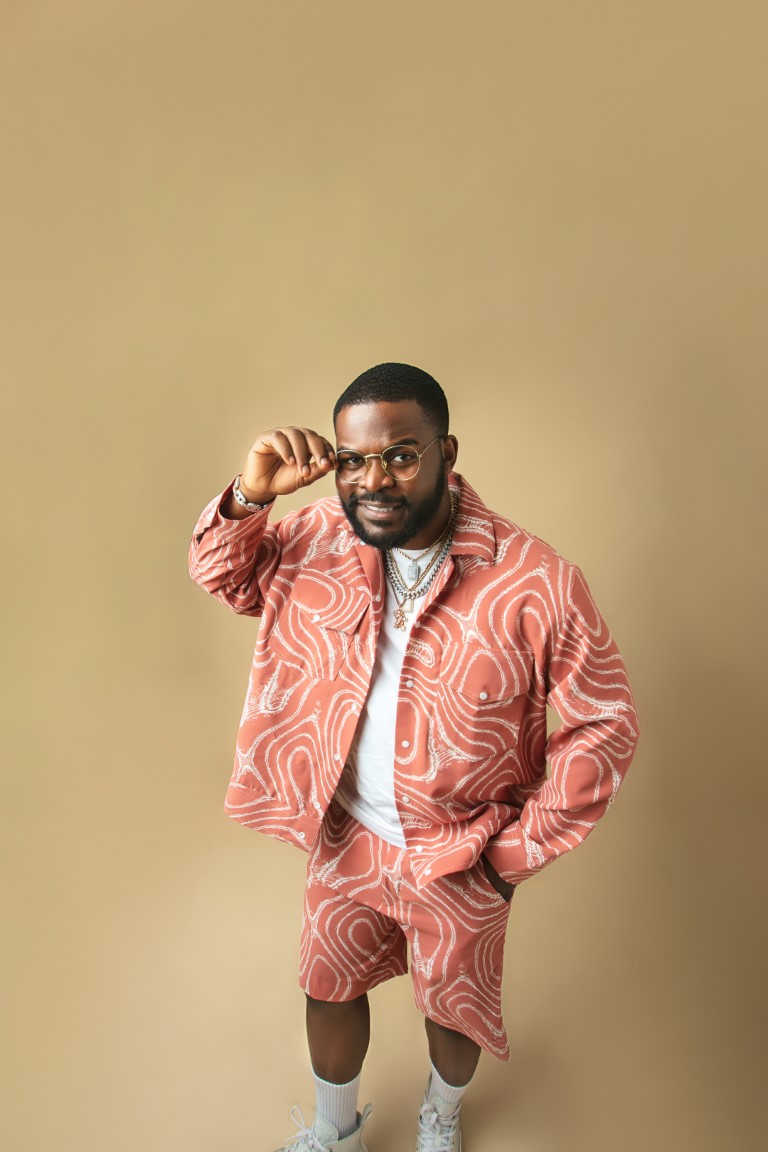
A strong force in the entertainment industry, he is the only musician in possession of not one but two AMVCA plaques. Having registered a consistent presence in both the music and film industries, two of the very few sectors in the country that work, Falz answered the question of what other sectors aside from entertainment work. He chuckled in his response. “Very good question; I don’t know of another one. Entertainment is what is giving everyone hope right now. Everyone is so down about every single thing in Nigeria; nobody is excited about anything apart from arts in general. African artists are what’s giving us hope.”
As aforementioned, Falz’s reputation as one of the few entertainers that speak directly not just to the government but also to its people is unrivalled. His music is often littered with several controversial talking points that sometimes put social media in a frenzy. On the Moral Instruction album, he discussed the concept of freedom. When asked to elaborate on what he thinks we need as a people to be free, he expounded. “To be free is to know who we are. We are absolutely lost. Apparently, we don’t know who we are. We still think that our true identity is what they’ve told us. I have spoken consistently about the effect of colonialism and all that stuff because, really and truly, the way we live now, we still largely mirror what the European man brought here. We haven’t been able to sit back and look at ourselves and say this is not me now. And as you correctly said, it ties into religion as well. What are the major religions in the country? Christianity and Islam were brought to us. Before the colonial masters came, we had systems that were working for us; we had gods we were serving. But as soon as these people came, what happened? We threw away our own. Are we mad? I mean, I don’t think it was voluntarily initially; these guys came with weapons, they came forcefully, so yes, they are the bullies. But there’s also a certain level of acquiescence that kind of happened on our side. Just being tacit, being almost like cold that these people are able to just walk over you and change your whole life settings. And till today, na still those settings we dey use operate. So until we wake up and realise that this is not us, not till then will we start to truly appreciate and love who we are. Because it is not until you appreciate yourself that you will know that ‘wetin dey this bottle? Why we no fit make am? Why we gas buy am from Europe? Kamoru in this place is into something something, come let’s make this bottle, what do you need? How can we make it?’ But we don’t even believe in ourselves. If I ask you where you got your shirt from, you’d tell me it was imported and consider it a flex. But that is stupid because what are you making in your country? What can your country boast of in terms of manufacturing? Absolutely nothing. And it wasn’t always like this.”
This year, however, saw a lot of changes in his music style. On an artistic level, Falz’s latest body of work, BAHD, sounds nothing like what he was known for. For this album, he relaxed the hard-punching relentless rap bars for a more melodious lineup of songs. He explained why he switched up his style. “For me, not being able to be boxed has always been my number one mantra as an artist. I do not ever want to be put in a box; I want to continue to reinvent myself, evolve, to flip the script. And that’s what I tried to do with this project; I wanted to do things differently. In the majority of the songs, I am singing, even though I’m primarily a rapper. There are a lot of emotions, it is sexy, and it is a completely different type of project. With me, it’s never one way. I have to stay unpredictable; never let them know your next move. There was that reaction from some people, almost like they don’t know what to expect. But at the end of the day, you will warm up to it, you’ll give it another listen and realise, ‘oh, wow, this is something different; I didn’t know I needed this in my life.’ The Falz that you know and love is still there o, don’t get me wrong. This is just a different journey; let’s see how this journey goes.”
Does he think it’s a worthy leap having to wait for people to warm up to his new sound? “It will definitely be a different journey, but I know that the way will always show itself eventually. If something is meant to go a certain way, the way for it to go will always show itself AKA what will be, will be. You’ve rightly said it definitely has to be a different strategy.”
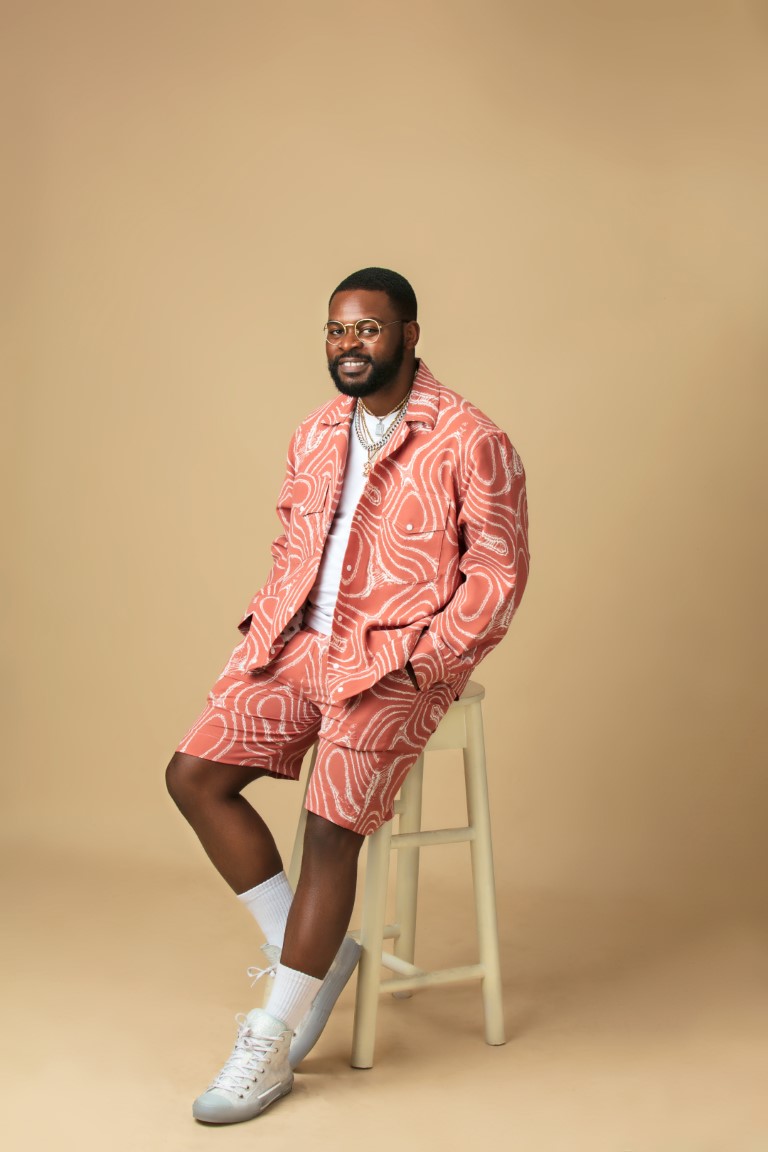
On future projects, he disclosed, “Brotherhood just dropped. Go and watch it! It will blow your mind,” he repeated four times for emphasis. He continued, “It’s different; it’s action. Action films aren’t often done because people aren’t sure how the execution will turn out. However, this is very well done. I believe it will blow your mind like Bahd. As for future projects, I’m definitely going to work on a lot more film projects, nothing to announce yet. Also, music-wise, it never stops; it is back to back to back, so stay tuned, more stuff coming.”
As the interview rounded up, it was important to shift the focus of the chat back to Nigeria. The most populous black nation in the world has the largest population of youth in the world, with a median age of 18.1 years. About 70% of the population are under 30, and 42% are under the age of 15. We are a very young country, so one would wonder why youth empowerment takes a backseat to most of the country’s welfare offerings. Falz shares his opinion on the best way to empower the youth. “In the simplest form, supporting every form of ambition across board that they would like to realise. Ambition will span across different classes in society. The youth in Egbeda, for example, is not the same as the youth in Ikoyi. There are different things that they want to achieve. But I’m saying, across board, them feeling like, “oh I can make it in Nigeria.” Now this person’s ambition might be to become a policeman. Making this person feel like their dream is valid and very achievable. But this person is already having self-doubts and thinking, ‘even with University, I can’t complete because ASUU is on strike half of the time. Even if I complete that, where will I find a job?’ So it is just fixing all these things, that is the answer. Let me feel like, as a young person, I can go to University, finish at the time I’m supposed to, and the standard of education is so top-notch that as soon as I finish, I’m getting a job. A job that pays well enough to sustain my dream. Simple. That’s all young people want; they just want to make it. The other demographic, the youth in Ikoyi, has some businesses to do, but the political setup makes it difficult for him, the rules, the taxes, and so on. Just make things easier for people to live, survive and realise their ambition. Everybody has a dream, and everyone is working towards something. So don’t let them feel like you are constantly frustrating them because that’s the way that we are feeling right now.” He continued, maintaining the same passion he started with. “Nigeria has the highest number of out-of-school children. That’s just a fun fact for you to sit down and realise. India has maybe four times our population (if not more); however, we have more children out of school than them. We also now recently overtook India for the highest number of poor people living in the country. Now India is in billions (1.4 billion people), so if they kept that number spot (the ranking of the highest number of poor people living in a country), everyone would understand that it’s because there are too many of them. Realising all these and allowing the stats sink in, is it not so annoying and frustrating that nobody is even doing anything about it.”
What is one message he has for young Nigerians? “Wake up and smell the coffee. Wake up and realise that the life you’re living right now is not your own; it is the life that the colonial father has put you in. This is what I was saying earlier; the effects of this post-colonial era are why we are still living our lives in this narrowminded state. This is how they left us; since then, everything we do has tried so much to be like the colonial fathers. Let’s realise who we are and see the beauty within that because that is when we will start to appreciate ourselves and be able to know that there is absolutely no reason why we can’t be self-sufficient. That is the only way we can get ourselves out of this mess. If Nigeria wants to consume these disposable cups, for instance, we have to import them. Nothing that we make here. It’s a mess. China is one of the strongest economies in the world. How so? They realised this thing I’m saying a long time ago. They shut off the world to many things. Apple, one of the biggest brands in the world, is largely dependent on the Chinese economy. Apple today can crash if political powers that be in China say that absolutely no Apple product can be made in the country again. All the HITECH products they sell at ridiculously expensive prices are made in China for way cheaper than they would have had to make in the US. That’s why they are making such a killing as a country. In the world, Africans, black people, are some of the most intelligent, most talented, physically, we’re the strongest, we have everything to be what we should be. So this independence, that’s what I want everyone to think about. Selfsufficiency.”
Four years have passed since his infamous controversial single This is Nigeria was banned for painting a vivid picture of where the country stood. Four years on, as we celebrate our 62nd anniversary of freedom, the same issues still plague us today. And although we can choose to focus on the positives and be grateful, Falz’s voice still echoes loudly as a constant reminder that this is still Nigeria.
Photography: Dylan Adekeye Aroloye x Tobee Oyeleye
Self-identifies as a middle child between millennials and the gen Z, began writing as a 14 year-old. Born and raised in Lagos where he would go on to obtain a degree in the University of Lagos, he mainly draws inspiration from societal issues and the ills within. His "live and let live" mantra shapes his thought process as he writes about lifestyle from a place of empathy and emotional intelligence. When he is not writing, he is very invested in football and sociopolitical commentary on social media.



